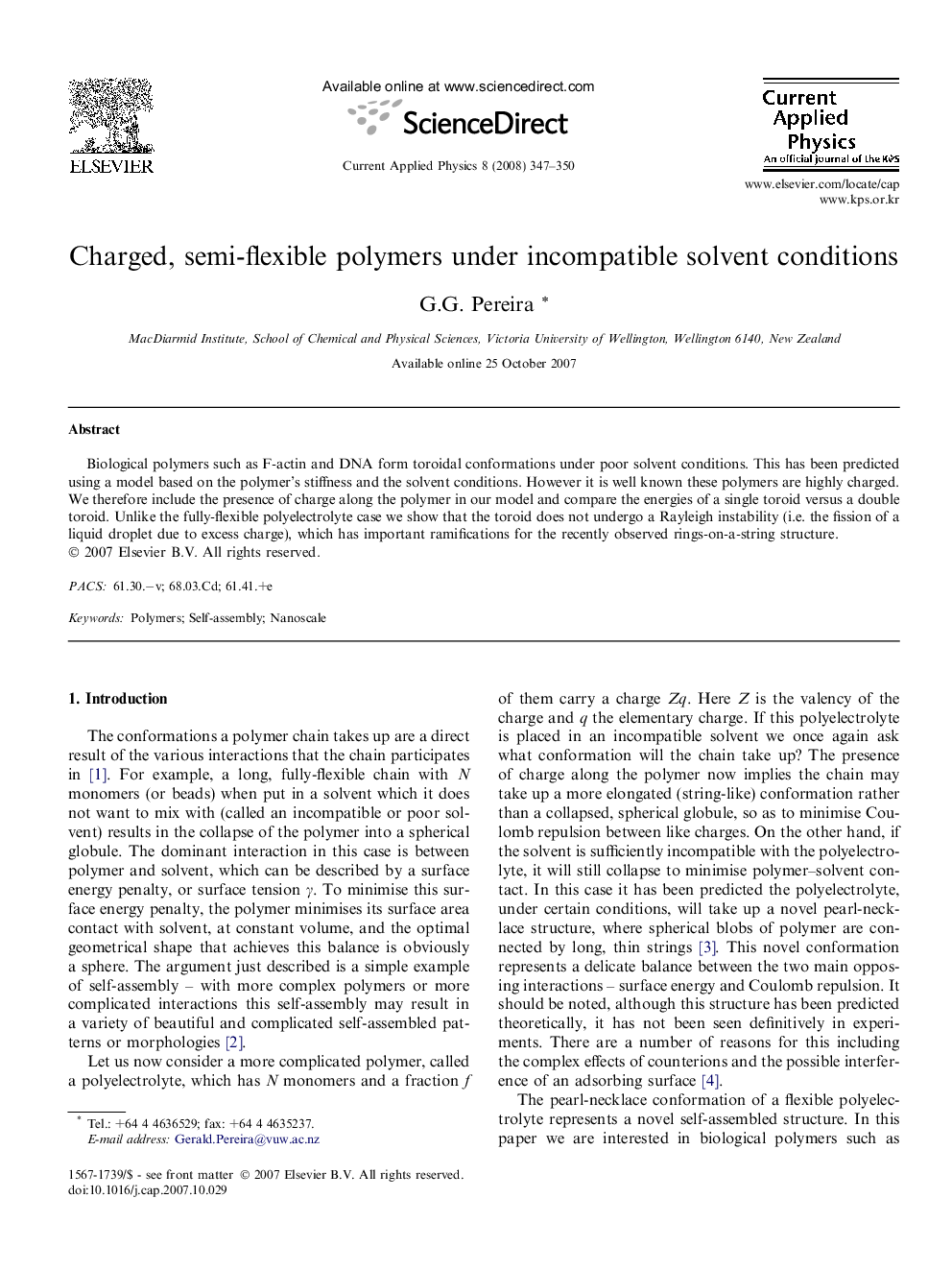| Article ID | Journal | Published Year | Pages | File Type |
|---|---|---|---|---|
| 1788490 | Current Applied Physics | 2008 | 4 Pages |
Abstract
Biological polymers such as F-actin and DNA form toroidal conformations under poor solvent conditions. This has been predicted using a model based on the polymer’s stiffness and the solvent conditions. However it is well known these polymers are highly charged. We therefore include the presence of charge along the polymer in our model and compare the energies of a single toroid versus a double toroid. Unlike the fully-flexible polyelectrolyte case we show that the toroid does not undergo a Rayleigh instability (i.e. the fission of a liquid droplet due to excess charge), which has important ramifications for the recently observed rings-on-a-string structure.
Related Topics
Physical Sciences and Engineering
Physics and Astronomy
Condensed Matter Physics
Authors
G.G. Pereira,
